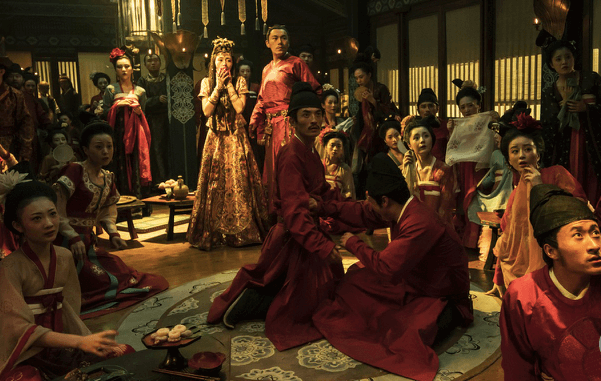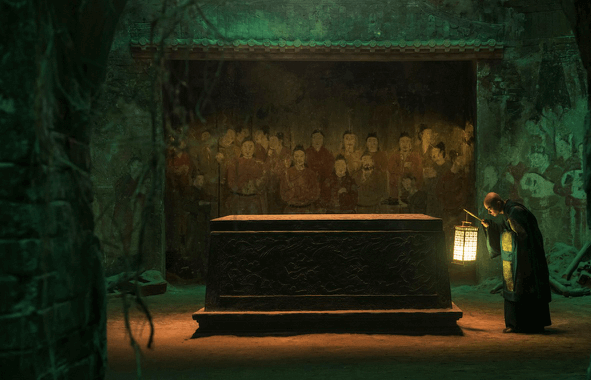Visually dazzling but convoluted, this story of a black cat that puts a curse on the Chinese imperial court, and a poet and monk called to investigate, is a fever dream you can either surrender to or give up on
Curiosity does not so much kill the cat as turn it into an immortal force of vengeance in Chinese director and co-writer Chen Kaige’s adaptation of Japanese writer Baku Yumemakura’s historical novel.
A major Sino-Japanese co-production, the supernatural murder mystery is crammed so full with dazzling visuals and convoluted exposition that viewers are advised to surrender to this fever dream – or give up entirely.
When a talking black cat begins to roam the royal court during China’s Tang dynasty, and puts deadly curses on the emperor, his heir, and his chief imperial guard (Qin Hao), Chinese poet turned palace scribe Bai Juyi (Huang Xuan) and visiting Japanese monk Kukai (Shota Sometani) are intrigued enough that they decide to investigate the rising body count the haunting is causing.

Bai learns of a grudge that may have begun with the death of consort Yang Guifei (Sandrine Pinna) during a rebellion 30 years ago, and that he may be picked to investigate because of a poem he’s writing about Yang’s love for emperor Xuanzong (Zhang Luyi), at which point the narrative shifts to Yang’s preposterously glamorous final months of life, related largely through the diary of a Japanese admirer (Hiroshi Abe).
A surreal spectacle that blurs the line between its magic tricks and paranormal occurrences, Legend of the Demon Cat mesmerises the viewer initially with its dynamic scenes of feline attacks, before making a mess of its emotional revelations by introducing too many characters too quickly. The film ends up too cluttered to convey adequately its themes of love and devotion.

Still, Chen’s insistence on grounding his grandiose vision in reality pays off. From the gigantic sets he built to the thousands of extras – and several cats – he employed for the filming, his vision of the Tang capital Changan transports the viewer even if the film does occasionally veer into horror.


